Breeding nutrition and food security through agriculture
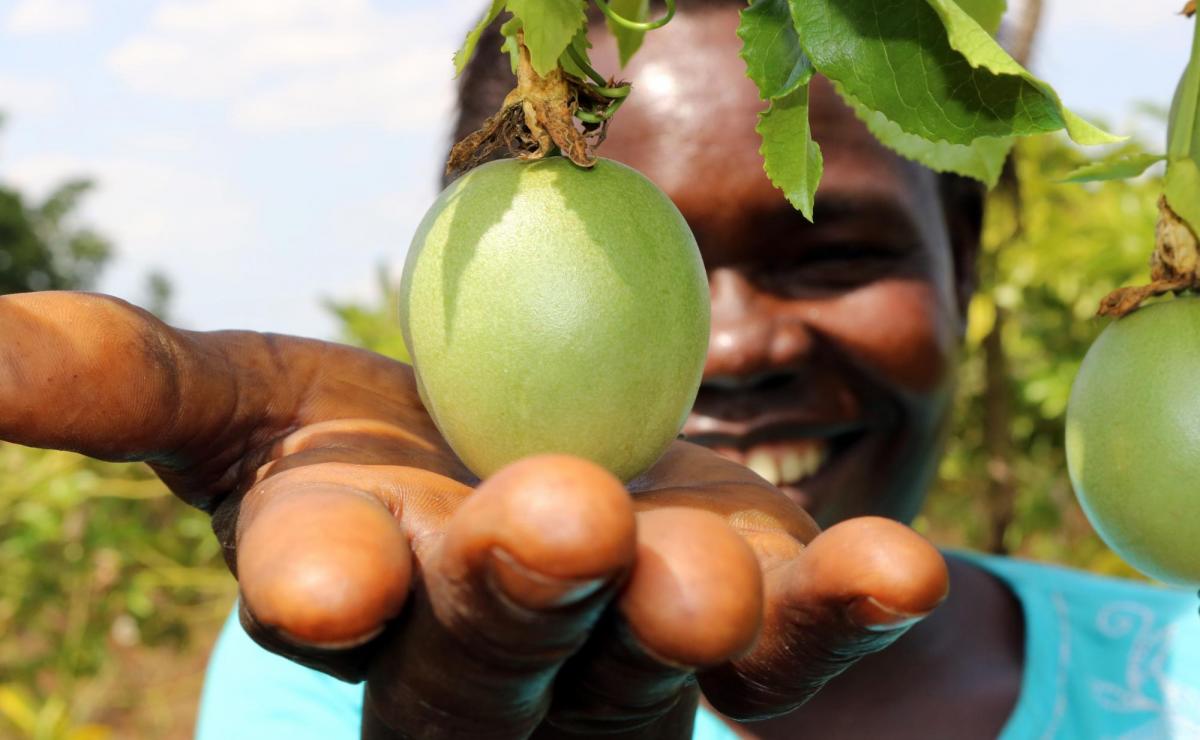
According to the report of the Uganda Demographic and Health Survey of 2011, 33 % of Ugandan children under the age of five years are stunted (short for their age), 6% are wasted (thin for their height), and 14% are underweight.
The report attributes this to malnutrition which remains a serious health and welfare problem in Uganda. This continues to affect the under-five children; contributing to their morbidity and mortality.
To avert malnutrition and its effects, farmer groups in Pader district, in Northern Uganda are focusing on diversified farming. They plant a variety of food crops in plenty. These include fruits, vegetables, food grains and many more. Others have also taken on livestock farming for milk and meat as well as establishing apiaries for honey.
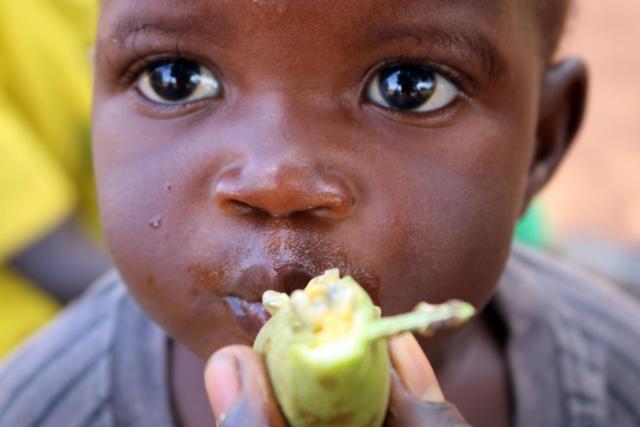
Beatrice Akello, a member of Wagene Farmers’ Group spends at least four hours a week removing overgrown and dry leaves from her passion fruit plantation. She also waters the fruit plants and monitors the group garden to look out for any diseases or pests that might have infested the one-acre garden in Pagwari village, Pader district.
During her garden visits, Akello once in a while harvests passion fruits that she takes home to make juice for her two little boys.
“My children are babies who need fruits for vitamins to be healthy,” Akello says; explaining that fruits are rear and expensive in Pader yet have a high demand. This she adds is what triggered the group to engage in passion fruit subsistence and commercial farming.
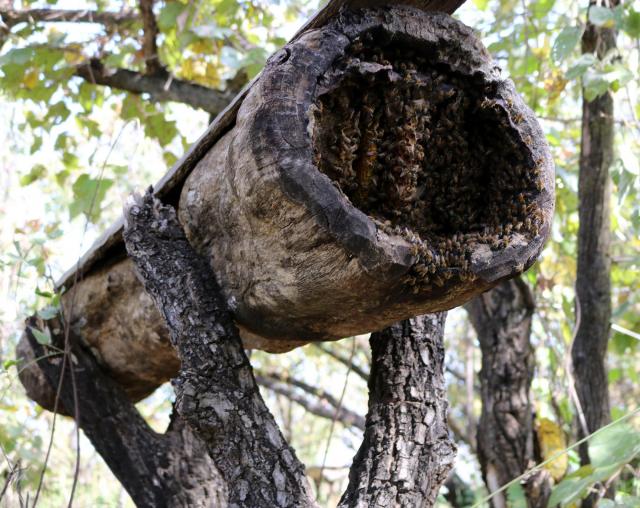
Health value of fruits and honey
Passion fruits have a long list of health benefits including; prevention of cancerous growth, digestion enhancement and immune function boosting. They also are known to balance body fluids, balance blood pressure and lessen inflammation; among many more functions.
These health benefits are attributed to the nutrient, mineral and vitamin content of the fruit. These contents include antioxidants, flavonoids, vitamin A, vitamin C, iron, magnesium, phosphorus, potassium, copper, fiber, and protein.
Justin Okura, an apiarist and rice farmer in Puda village; also in Pader district says he diversified his food production from only rice to honey bee farming so as to provide his family and community access to honey, considering its nutrients and health benefits.
“Here, we use honey to treat cough and with my apiary farm, I now don’t have to pay hospital bills to treat cough,” says Okura who also sells part of his harvest to the people in his community.
Other than reducing cough and throat irritation, honey reduces ulcers and other gastrointestinal disorders, helps in regulating the body’s blood sugars and also strengthens the immune system.
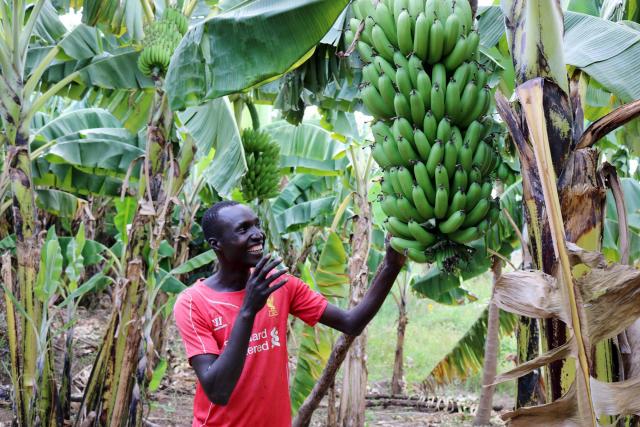
Food crops for nutrition and food security
Other than fruits and honey, farmer groups in Pader are also focusing on food production in varieties. While some plant and harvest grain foods for carbohydrates, others plant beans, black peas and egg plants for more nutritional values like dietary fiber and proteins.
Upon harvesting their crops, the farmers in these groups fill their granaries and sell off the rest for income. “We keep enough food to eat all through the dry season until the next harvest to avoid incidences of hunger,” explains Johnson Tore, a maize and beans farmer attached to Iyegwa Farmers Group in Pader district.
He adds that some people do barter trade (exchange food for food) to get what they don’t have. For instance, if one only planted maize, they can exchange some of the harvest for fruits, beans and other foods to get a variety. “We exchange food to give our families access to a balanced diet so that we continue to live strong, healthy and happily.”
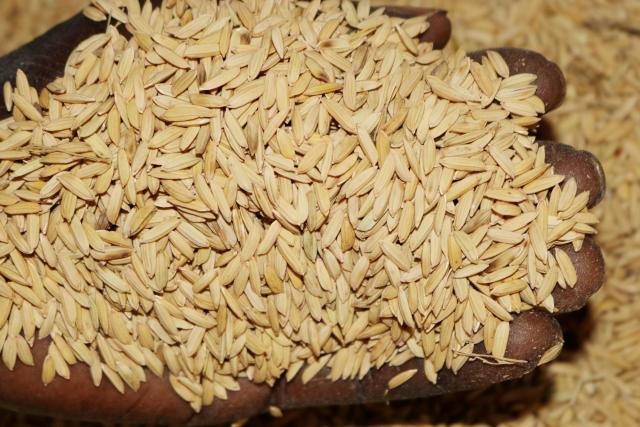
Surplus harvest sold off for a living
“We plant maize and beans on 100 acres as a group. We share some of our harvest and sell off the surplus to meet our financial needs for services like education, health care, household materials and venturing into other businesses,” reveals Tore.
The group sells their harvest in bulk to produce traders in Uganda’s northern region. “Our gardens are food baskets to thousands of people elsewhere. We usually sell off our surplus to produce traders from Lira, Gulu and others districts. And when we receive the money, we save it in our Village Savings and Loan Association (VSLA). This makes loans for businesses accessible to every group member,” Tore adds.
“We have also helped form and supported 44 farmer groups and 1,527 individual farmers with training in improved agronomic practices. We also offer cash grants to venture into commercial agriculture since majority of the people in Pader predominantly depend on agriculture for both food and livelihoods,” says Susan Adoch, a Field Extension Worker with the Lutheran World Federation (LWF).
With support to farmer groups, food security in Pader has increased tremendously. Livelihoods among the beneficiaries have also improved tremendously ever since LWF started supporting farmers in Pajule, Lapul, Latanya sub counties as well as Pader Town Council through the Kitgum and Pader Sustainable Livelihood Initiative project with funds from Church of Sweden.

